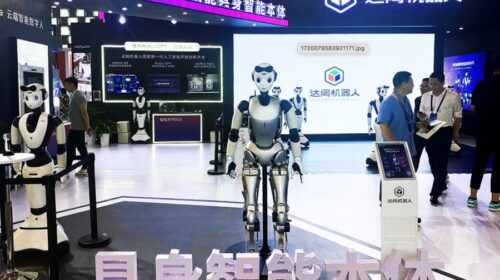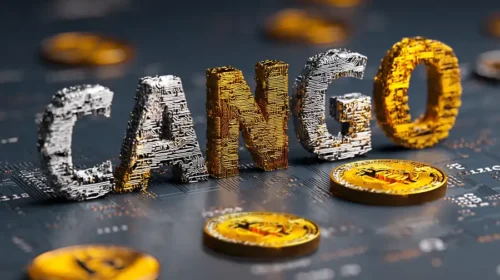Sun Art pursues life after Alibaba in China’s evolving retail landscape

Alibaba is negotiating with a potential buyer for its majority stake in the operator of RT-Mart hypermarkets, Sun Art said
Key Takeaways:
- DCP Capital and Hillhouse are among the private equity funds that may be interested in buying Alibaba’s 79% stake in Sun Art
- The hypermarket operator swung into the red in its latest fiscal year, but returned to profits in the six months to September, as it closes stores and reduces costs
By Edith Terry
Hypermarket operator Sun Art Retail Group Ltd. (6808.HK) thought it found a savior in 2017 when e-commerce juggernaut Alibaba (BABA.US; 9988.HK) bought a major stake in the company. Now, seven years later, it seems the hypermarket operator is having second thoughts about the marriage and is doing a bit of shopping itself for a new mate.
Investors seemed to like the idea of a pending divorce, based on an intra-day jump of as much as 30.7% in Sun Art’s shares on Oct. 16 as trading resumed after the company announced that a potential buyer had shown interest in purchasing Alibaba’s stake. Adding to the excitement, Sun Art released a positive profit alert the same day.
The positive alert contrasted sharply with just six months earlier, when Sun Art warned it swung deeply into the red in its fiscal year through March 31 this year, after reporting a modest profit in the year-ago period. It ultimately reported reported a massive 1.6 billion yuan loss ($225 million) for the fiscal year through this March on revenue of 72.5 billion yuan, which was down 13% from the previous year.
The news was far better in the latest profit alert, where Sun Art said it expected to record a net profit after tax of 150 million yuan to 200 million yuan for the six months to September, the first half of its fiscal year, compared to a 378 million yuan loss a year earlier. The stock’s big gains the day after the announcement, as trading resumed after a nearly three-week suspension, made Sun Art the third biggest percentage gainer in the Hang Seng Composite Index that day.
Sun Art’s stock has settled down since that initial euphoric day, as reality sunk in that a new owner may be just the start to a company turnaround. But at their latest close of HK$2.11 on Wednesday, the shares are still up about 18% from pre-announcement levels, and are up 50.7% year to date, giving Sun Art a market cap of HK$20.1 billion ($2.58 billion).
According to a Bloomberg report in late September, DCP Capital and Hillhouse were among the suitors for Sun Art. The company first attracted Alibaba in 2017 at a time when the e-commerce giant made a series of similar investments in traditional brick-and-mortar retailers as part of its “new retail” strategy combining online and offline shopping.
Alibaba’s influence doesn’t seem to have done much for Sun Art’s business, which was started from scratch in Shanghai around the turn of the century by one of France’s most successful retailers. Alibaba initially invested HK$22.4 billion to buy 36% of Sun Art in 2017, and three years later upped its shareholding to 70.94% for another HK$28 billion.
Now, the pending divorce looks like part of a broader wave of dispositions of assets that Alibaba acquired during headier days, as it tries to rebuild its core e-commerce business.
Dispositions
Alibaba is making the dispositions after an earlier plan launched in March 2023 to break up the company ran into headwinds and Daniel Zhang, once touted as the successor to founder Jack Ma, left the company. Ma acknowledged mistakes in a long memo to Alibaba employees in April, which were echoed by current Chairman Joe Tsai, who admitted in a recent interview to forgetting who the company’s real customers are.
While Sun Art has had its financial ups and downs under Alibaba, the company still has some value left in its popular chain of RT-Mart hypermarkets and other assets. The company started out in 2000 as a partnership between Auchan Retail, owned by the Mulliez family of France, and Taipei-based Ruentex Group.
The partnership had over 200 stores by 2007 and listed its shares in Hong Kong in 2011. As its original hypermarket format lost popularity, it opened its first paid-membership store, M Club, a clone of Walmart’s Sam’s Club, in Yangzhou in 2023. Despite uneven revenue and profit performance between 2022 and 2024, Sun Art has been following the lead of Walmart and Costco in China by setting up more warehouse and membership stores, while decreasing its count of traditional hypermarkets.
Hypermarkets like Sun Art’s RT-Mart have fallen out of fashion in China as big-box stores like Costco and Sam’s Club offered better pricing and consumer-oriented selection. As of March this year Sun Art had 507 stores, up from 498 a year earlier, although its gross floor area shrank to 13.5 million square meters from 13.7 million square meters over the period.
According to data aggregator Statista, Sun Art’s RT-Mart brand was the fifth-largest retail chain operator in China last year, based on retail sales. It has strong brand awareness in a massive Chinese retail market worth 47 trillion yuan in sales last year, according to the same source.
While Sun Art’s top and bottom lines aren’t particularly impressive these last few years, its gross profit margin has been relatively stable at 24.6% in its fiscal year to March 2023 and 24.7% in the latest fiscal year through March 2024. Its revenue has shrunk continually in recent years, including its latest decline from 83.6 billion yuan in its fiscal year through March 2023 to 72.6 billion yuan in the fiscal year through March this year. Much of the declines owe to store closures and a contraction of the company’s supply chain business, according to the company. Much like Alibaba, Sun Art is now laser focused on a “return to the essence of retailing and founding principles established by RT-Mart.”
Among those who may be laughing all the way to the bank now are the Mulliez family, whose patriarch, Gérard Mulliez, founded Auchan Retail in Roubaix in the north of France in 1961. Auchan is known as the Walmart of Europe and has stores in 12 countries with more than 150,000 employees. While the 93-year-old Mulliez won’t profit from any Alibaba sale of its Sun Art stake, he certainly must be glad he sold his shares in the China venture when he did. That’s because the company that he sold for about HK$8.10 per share all those years ago now trades at HK$2.10, or about a quarter of what he got.
To subscribe to Bamboo Works free weekly newsletter, click here






